Libya: New Laws, Bilateral Agreements and the Economy
Khalil Masoud Mahfud, Chairman of the Board of Directors of Tripoli Chamber of Commerce, Industry and Agriculture
From 2008 and 2010 Libya signed about 68 agreements with other countries avoiding double taxation and promoting economic exchange.
Interview with Khalil Masoud Mahfud, Chairman of the Board of Directors of Tripoli Chamber of Commerce, Industry and Agriculture
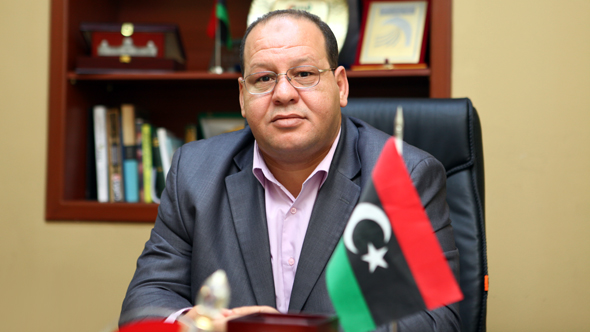
From 2008 and 2010 Libya signed about 68 agreements with other countries avoiding double taxation and promoting economic exchange, now what has been done since then, and what is the outlook for trade agreements with other countries?
We are working based on the constitutional declaration which was made after the recent revolution knowing that this declaration states that we must respect the current laws that govern the daily life activities, the economical and political practices along with maintaining the already signed agreements, the only abolished materials were related to the former regime but the previous laws and agreements are still active.
Yet, after the liberation we are trying to look into those agreements. So when we talk about the economical level, we started working based on certain agreements and we are still doing so till this time. On the other hand we are trying to cancel certain agreements and make new ones that would facilitates work for businessmen allowing them to conduct their activities freely. We are also aiming to make Libya a part of the Agadir agreement for free trade exchange. We also want to develop our current legislation and current agreements which are still active till this day.
Yet, after the liberation we are trying to look into those agreements. So when we talk about the economical level, we started working based on certain agreements and we are still doing so till this time.
And are you signing more agreements with new countries?
Yes, we are trying to have good economical ties with all countries in the world, we also want to sign new agreements with our brothers in the Arab world along with signing new agreements with our friends and whoever proves beneficial to both sides.
In 2010 there was a big plan to industrialize the country and it targeted about 2,000 industrial projects worth of US $2 billion, so what is the status of industrialization of the economy? Is the diversification still in progress? What is happening at the moment?
As for the industrial sector, you need to ask the Minister of industry about that. But in general, I can say that the plans of the Ministry of industry are clear as they are trying to energize all the previous projects and make new ones by, for example, focusing on small and medium industries knowing that the current government is giving a lot of importance and attention to this project since these industries play a major role within the national economy. The government is still working hard to energize the industrial plans in our country by the Will of Allah.
What is the role of the Chamber of commerce in encouraging investments within the industrial sector in Libya?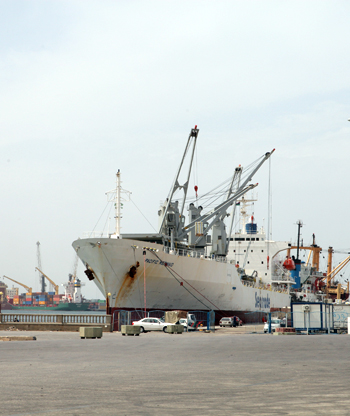
The Chamber of commerce aims to address any kind of problem within the private sector or related to this chamber, then motivate the government to activate and launch such projects which help to build a strong economy in our country and then take part with the government to set new legislation and plans to energize the economy. So we are working hand in hand with the government despite that we only started recently, yet we are still trying hard to stabilize the country’s economy which is tied to the stable security that we are enjoying nowadays by the Will of Allah, and that encourages us to aim for economical development by the Will of Allah.
What kind of challenges do local or foreign investors face when operating in Libya?
By the Will of Allah, I think there will be no challenges after the revolution, because we met huge enthusiasm in regards to energizing the local economy after having serious discussions with officials from the government. The Minister of trade and economy in Libya is a well-known businessman who used to be the head of the Chamber of commerce and industry.
Ever since he was assigned to his new position, he made it a top priority to review the old legislation and decisions which hindered investments. So he formed a committee to study and evaluate the Law number 23 which organizes the economical activities within the country. This committee is working currently to make the needed amendments, and more specifically to modify the decrees related to that law. Now this may push us to review certain parts of the law despite the fact that we think it is a good law yet it needs more facilitations and amendments that will give our economy more freedom that benefits the Libyan or the foreign investor. So we already started preparing to deal with any challenges if any, but we assure investors that we do have plenty of investment projects, we also have the Law number 9 for investments which encourages investments and privatization, and we think it’s a good law. So I don’t think there are any challenges as long we have the will to solve them.
Now, the biggest challenge we face now is the freedom in the money flow just like any other country, we also have a challenge when it comes to the shares of a foreign partner and the type of the partnership with such partner, also the inability of the financial institutions of the state when it comes to supporting the private sector. That’s why we are trying now to convince the financial institutions of the state to support the private sector with the funds they have. These are the challenges we are facing now, but in order to make the investors feel more secure, we assure them that we are working with the government to address and deal with these challenges by the Will of Allah.
Regarding the foreign investments, the government recently amended certain laws where the FDI can enter and to what sectors, it is the new companies’ laws. So what is the outlook for the FDI in Libya?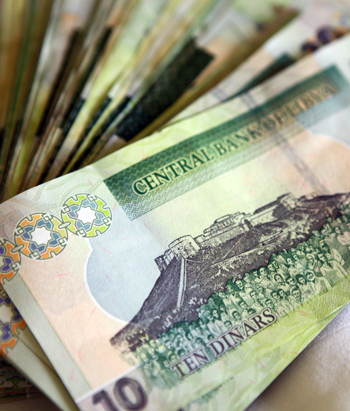
The Law number 9 was issued back in 2010 and not after the revolution. It is a good law for investments, and now the current committee is studying and reviewing this law in search for any negativity.
What is the main position of Libya compared to other countries? What is the main advantage of doing business in Libya?
I think the main advantage is the strength of the Libyan economy and its status in this time of global economical recession, all of these are advantages that will convince the foreign investor to invest in Libya. These factors also provide chances for a successful investment, because Libya is a country that needs investments and massive infrastructure projects of all kinds, while keeping in mind that it’s a fertile land for such big plans because it enjoys huge natural resources and a long sea cost that stretches over 2,000 kilometres.
Regarding Resolution number 333 in 2012 about arbitration of commercial dispute, how can the Chamber of commerce arbitrate the commercial dispute between different parties?
This is a part of the law that organizes the work of the Chamber of commerce and industry, and it states that the Chamber of commerce and industry handles matters of reconciliation and arbitration between the disputing member companies. This function has been activated and a centre was established within our office in Tripoli here which holds the name “Tripoli’s office for reconciliation and arbitration.” We are currently preparing this centre to handle these kind of disputes and bear the responsibility of such task. And I think since the establishment of this centre 7 months ago, we handled a case between two disputing parties. 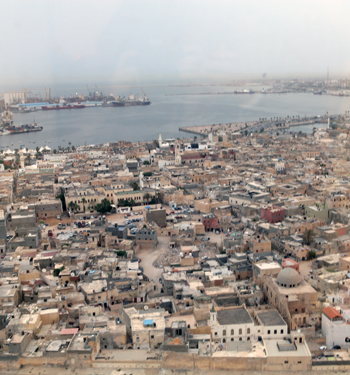
Nowadays, we are currently aiming to sign new agreements with international centres for reconciliation and arbitration in order to increase our capabilities because we are aware of our need for this centre in order to resolve these disputes related to the field of economy.
The Tripoli’s office for reconciliation and arbitration consists of a board of directors which is responsible for running of this centre and looking into these legal cases, and it also has specialized arbiters. The law states that this centre enjoys independence when it comes to the decisions it issues and immunity when implementing those. The main condition when it comes to issuing a decision is that this centre is the only party responsible for giving a ruling related to a certain case, and this will help the disputing parties by resolving the case in a quick way compared to the traditional judiciary. The centre also employs of economical and legal specialists who are available to look into these matters as well.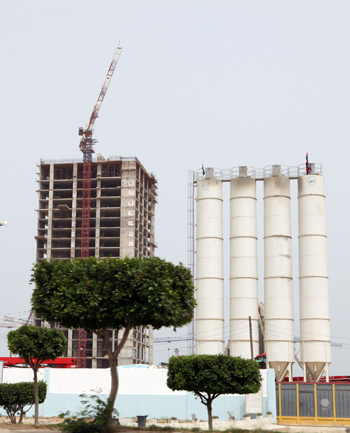
Lastly, now that the old regime is over and a new government is in place, how does this affect the business environment in the country?
The new developments are related to the efforts made by the new administration when it comes to the reviewing of laws and re-activating and energizing them along with freedom and independence in order to boost our economy through a new set of free and efficient laws.
For example, the law states that in order to have a company in Libya you should have 10 people when establishing it, but now we would like to change and allow to form a company by 2 people only, or even one if that person is capable of doing so and establish companies that focus on industry and commerce.
Also we have another problem with the current law as it states that you must establish a specialized body in a certain field. So we are aiming to modify this law so it allows the investor to form a private institute related to commerce and industry owned by one person. All of these changes are taking place after the liberation, we used to have these ideas before but there were factors that kept the law limited. Fortunately, we are now finally allowed to draft new laws that will give us freedom in work. We are now free to decide what is best for us and since the work is organized by law then all the doors would be open since we will be working under that new law. So we are working to free ourselves through the new laws and not outside it.
There is a lot of misperception in the media regarding Libya, and when you read the news it’s not always positive, so what are your plans to change these views, and what is the most important positive information that an investor should have before coming here?
As for the situation in Libya, the current month is better than the previews month, and we are keen to pass the right image about Libya through you, and this is why we welcomed you here and made this interview. We know that you will pass forward our words and what you witnessed in here in Libya. You can go around Tripoli and pass the image you will see to the outside world. As for us, we would like to assure the foreign investors that Libya is progressing with every passing day by Allah’s Will.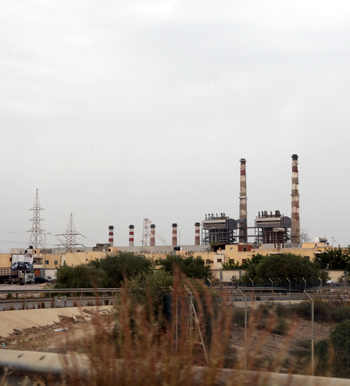
This is why we are doing what we can to assure the foreign investor about coming to Libya, because we are passing through a transactional phase, we are facing huge political and economical challenges, and these challenges need a lot of time and effort to be resolved, the current government is doing a lot to balance its efforts between focusing on economy and security, and I think we will witness in the near future the arrival of many foreign companies to Libya in order to do business here.
For that reason, we deliver our message to you and hand you the needed documents which speak about the new laws, the encouragement plans and the incentives for the foreign investors. Libya with its resources is very much capable of dealing properly with foreign investors.
The situation is very good and we notice improvements every day, the proof of which are the actions of the government; it started convincing companies so they can resume their activities. I nevertheless think the major obstacle in this matter is related to the compensation requested by the companies in order to cover the losses they had endured during the war. So the prime minister of Libya requested to form a committee to look into this matter, and I think in the coming future we will witness solid results as the companies will resume their activities in Libya.